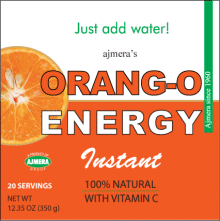Six Ways to Boost Your Athletic Performance
by www.SixWise.com
Whether you're a professional skier, an avid golfer or just trying to make it through your daily workout, most everyone would enjoy an improvement in their athletic performance.
|
You must win your "mental game" in order to conquer the physical one, which is why meditating daily is an excellent way to improve your performance. |
And though this typically comes over many months of practice, patience, and dedication to your particular sport, there are things you can do right now to improve your physical endurance, focus, skill and energy levels come game (or gym) time. Best of all, these tips for getting you to the top of your game are so simple, we all can do them.
1. Put on a Little Music
Olympic gold medal winner Michael Phelps always has his headphones on before a race, and you should too. Why? Music soothes your mind and calms your nerves, helping you to get into the right mindset for the sporting event. As a bonus, listening to music during your workout may not only motivate you to work harder and longer, it may actually make you smarter too. A 2004 study in the journal Heart & Lung found that people who listened to music while they exercised performed more than twice as well on a verbal fluency test than people who listened to no music.
Studies conducted at the University of Memphis Exercise and Sport Nutrition Laboratory by Dr. Richard Kreider found that honey is a superior source of energy for athletes. In one trial nine competitive cyclists were given a honey, glucose or placebo gel prior to and at 10-mile intervals of a simulated 40-mile race. The honey was found to significantly increase power and speed over the placebo. To get the most health "bang" for your buck, look for raw honey, which still contains its beneficial enzymes and nutrients.
3. See a Chiropractor
If your body is out of alignment, particularly because you've had a past injury, it could be hindering your athletic abilities. If your body leans forward or your head is slightly forward of your neck and chest, you may not be functioning as well as you should. A chiropractor can correct these misalignments, which may help you to run faster, jump higher, and even increase your endurance.
4. Get Extra Sleep
Researchers at Stanford University found college basketball players who got some extra sleep were able to decrease their sprint times and increase their average free throw percentage. They also reported increased energy and improved mood during their games and practices. What's more, getting extra sleep for as little as two weeks was enough to significantly improve the players' athletic performance.
|
A spoonful of honey before your big game or long run may increase your power and speed, researchers say. |
5. Meditate Daily
Meditating for even short periods daily can increase your focus and attention, both of which are essential for your athletic abilities. In fact, a study by researchers at the University of Pennsylvania found that even those new to practicing meditation were able to enhance their cognitive performance and ability to focus attention. If you're interested in giving meditation a try, the Pure Relaxation CD is ideal. It includes guided meditations by a leading meditation expert, Mary Maddux, and music by a renowned meditation music composer with 20 years experience. These meditations are unique in that they guide you to relax in a natural, effortless way, making them great for a post-workout cool down or anytime you need to get focused and calm.
6. Try out Compression Clothing
Compression clothing is still relatively new in the amateur sports world, but those who have tried the odd looking socks, arm sleeves, and leggings swear by them. Perhaps most popular are the socks, which use graduated pressure that is heavier at your foot and lessens toward your knee. This helps blood to flow back to your heart and lungs, get oxygen, and then return to your legs. The clothing also compresses muscles, which reduces unnecessary vibration and reportedly decreases fatigue and muscle pain. Athletes who wear compression clothing say they have less muscle fatigue and leg pain, improved circulation and recovery time, and like the way the clothing keeps their muscles warm during a workout.
Recommended Reading
14 Things to do if You Feel Tired and Sore After Working Out
The 10 Keys to Start an Exercise Program -- and Finally Stick to It!

















No comments:
Post a Comment